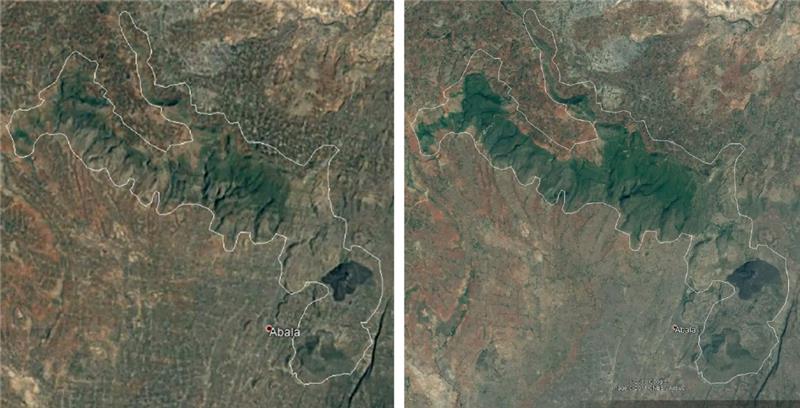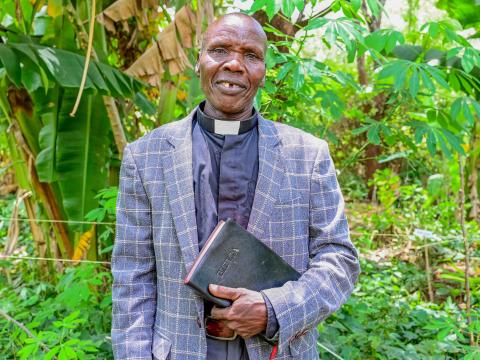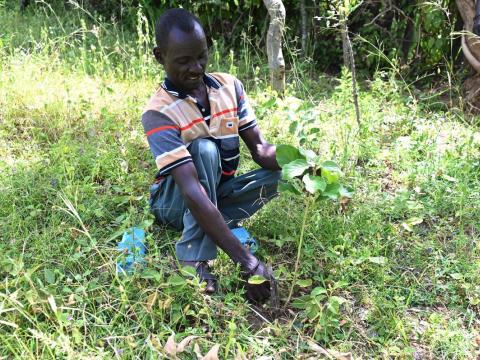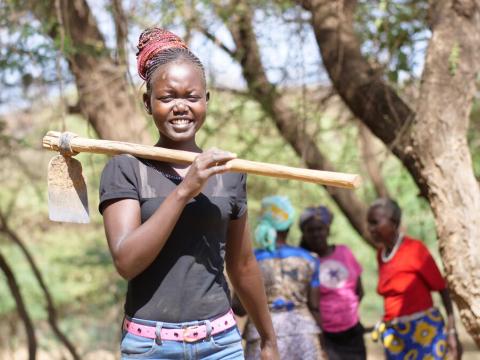Who Really Owns Africa’s Climate Future?
Yordanos Berhe Beyene reflects that Africa’s climate future depends on communities, not boardrooms and without their leadership, even billions in pledges will not be enough.
8 September 2025.
When Africa’s leaders gather in Addis Ababa this September for the African Climate Summit (ACS2), the spotlight will inevitably fall on presidents, policymakers, and financiers. Yet the real story is not written in summit declarations or grand pledges. It is written in the daily struggles and triumphs of families who coax food from dry soil, of children who walk fewer miles for water, of communities who choose hope over despair. If climate action does not begin with them, it will fail.
I have spent years working alongside communities in Ethiopia who are transforming barren landscapes into green fields, often with little more than seeds, determination, and shared knowledge. Their innovations are not footnotes to climate policy; they are the beating heart of Africa’s resilience. And ACS2 is our chance to prove it.
Climate Action Starts on the Ground
Too often, climate debates get lost in high-level negotiations and elusive finance. Yet farmers are already reshaping their futures through Farmer Managed Natural Regeneration (FMNR) a low-cost, community-led method that turns degraded land into fertile fields.
Take the children of Tigray, who once faced empty plates during droughts. Today, thanks to FMNR, their families harvest enough to survive dry spells. These are not abstract case studies; they are lived realities. When leaders at ACS2 talk adaptation, they should be listening to these children.

Solar Water, Stronger Communities
During ACS2, solar-powered water systems will be highlighted as a practical solution for communities facing water scarcity. By harnessing solar energy, these systems deliver reliable, low-cost water, freeing mothers from long daily walks and giving children more time for school. Reliable, solar-powered WASH is more than technology it strengthens livelihoods and builds resilience.
Young people are also speaking up. In children’s dialogues, they share how rivers dry and crops fail and how they adapt every day. Their voices remind us that climate change is not a distant threat; it is a reality lived by families across Africa.
Carbon Finance: Local Roots, Global Reach
Another frontier in climate action is carbon finance; full of promise, but not without risk. Innovators, investors, and governments are increasingly looking to it as a tool for change. Yet when communities are left out, these markets risk becoming another top-down scheme with little real impact. Done properly, they can provide tangible income for villages restoring forests or adopting clean energy, turning local effort into global results.
Ethiopia offers a powerful example. In collaboration with the World Bank, the Environment Protection Authority, and the Ministry of Planning & Development, communities are shaping policies that could define Africa’s carbon future. At ACS2, this demonstrates how grounded, community-led solutions can meet international ambition, proving that effective climate action starts with people on the ground.

Why this summit must be different?
For World Vision Ethiopia, ACS2 is not just another summit. Our joint pavilion “Community-Led Climate Solutions for Children’s Livelihoods” is designed to disrupt the traditional narrative. It is not an exhibition of concepts but a living, breathing space where voices of farmers, children, and families demand to be heard.
Because climate action is not about 2050 targets alone. It is about a girl in rural Oromia who can now attend school because she no longer fetches water. It is about parents who, despite recurring drought, still manage to feed their children. It is about restoring dignity and possibility to millions across Africa.
So, who really owns Africa’s climate future?
Not only ministers, not only investors. It belongs to the people whose lives depend on the land, water, and forests we so often discuss in abstract terms.
At ACS2, let us resist the temptation to talk only in billions and targets. Let us instead commit to scaling up proven, affordable, community-led solutions. Governments, donors, and partners must invest boldly in FMNR, resilient WASH, and inclusive carbon finance.
The evidence is already here. The urgency is undeniable. The voices are rising. The only question is: will we listen?
To learn more about Climate-Resilient WASH – Ethiopia Click here
To Read more about the Global Technical Capacity Statement ESCA Click here


